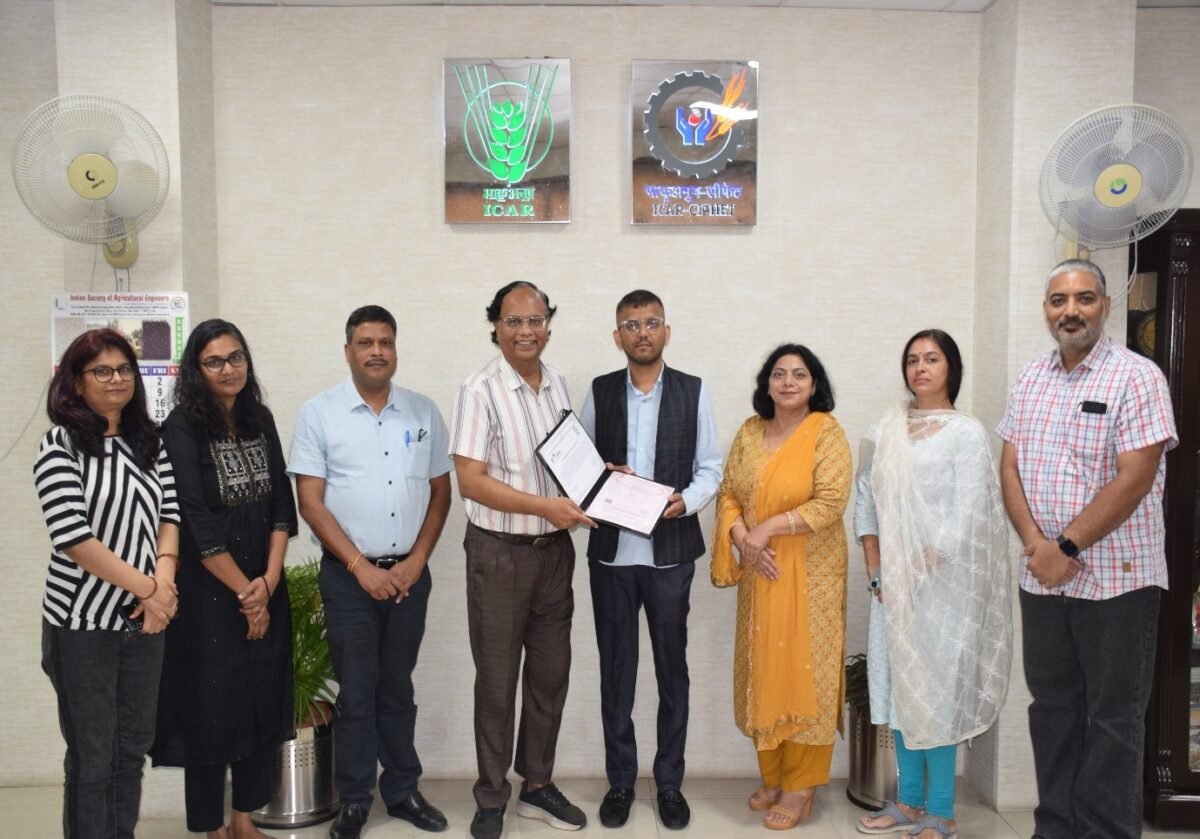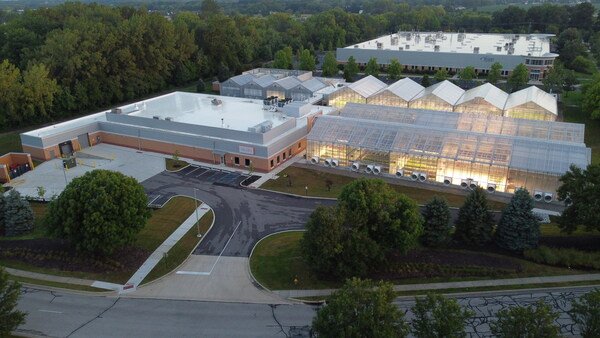He was speaking during the publication ceremony of the Marathi translation of the Hindi book ‘Naisargik Sheti’ written by Acharya Devvrat organised by the Agrovision Foundation.
The indiscriminate use of chemical fertilisers like urea, DAP, and pesticides has led to barren lands and an increase in disease incidences. Thus, Gujarat Governor Acharya Devvrat urged farmers to embrace organic farming to restore soil fertility, reduce costs, increase production, and promote better health.
This appeal was made during the publication ceremony of the Marathi translation of the Hindi book ‘Naisargik Sheti’ written by Acharya Devvrat. The event, organised by the Agrovision Foundation, took place at Dr Vasantrao Deshpande Auditorium on Sunday. Union Minister Nitin Gadkari presided over the program, alongside prominent dignitaries including Dr. Sharad Gadakh, Vice Chancellor of Dr. Panjabrao Deshmukh Agricultural University, Dr. Nitin Patil, Vice Chancellor of Maharashtra Animal and Fisheries University, Dr C.K. Timbadia, Ravi Bortkar, President of Agrovision Foundation, Ramesh Mankar, Treasurer, and others. The ground-breaking ceremony of the Agrovision Farmers Training Centre was also held, and the translator of ‘Naisargik Sheti,’ Nitin Naigaonkar, along with editorial guide Shailesh Pandey, were felicitated.
Acharya Devvrat emphasised that chemical farming is a conspiracy imposed on farmers and challenged agricultural researchers to demonstrate that chemical fertilizers do not increase farming costs or degrade soil quality. He contrasted organic farming with natural farming, highlighting the benefits of using indigenous cow dung and cow urine to enhance soil fertility and crop yields.
Praising Nitin Gadkari’s visionary leadership in the agricultural sector, Acharya Devvrat commended his initiatives, including Agrovision, training centers, and efforts to make farmers self-reliant.
Ravi Boratkar conducted the foreword, while Asawari Galande-Deshpande moderated the event. The vote of thanks was delivered by Ramesh Mankar.
A New Market for Farmers: Nitin Gadkari
During the event, Nitin Gadkari Union Minister Road Transport & Highways and Chief Patron of Agrovision announced plans to establish a market where farmers can directly sell their naturally farmed products and fruits to consumers, ensuring direct benefits for the farming community. He also revealed that the country’s first Agro Convention Center will be set up within the premises of Dr. Panjabrao Deshmukh Agricultural University.
The upcoming Agrovision Farmers Training Center will provide facilities for soil and water testing, and modern training in new technologies. Gadkari emphasized that measures such as encouraging natural farming, river and canal deepening, and enhancing seed and plant nurseries will lower farming costs, increase production, and help farmers become debt-free, ultimately contributing to the prevention of farmer suicides. He urged the widespread distribution of Acharya Devvrat’s book ‘Naisargik Sheti’ among all farmers.
A New Chapter in Agrovision’s History: Ravi Boratkar
On Sunday morning, Gujarat Governor Acharya Devvrat and Union Minister Nitin Gadkari inaugurated Agrovision’s modern Farmer Training Centre, marking a new chapter in Agrovision’s history. Ravi Boratkar, Chairman of Agrovision Foundation, expressed his pride in this achievement during the event.
He announced that Gadkari’s vision of an agricultural training centre under Agrovision will soon be released. The centre will feature training classes, a 150-seat auditorium for workshops, a library, and labs for soil and water testing. Plans for a future farmer’s market were also shared, emphasising Agrovision’s commitment to supporting farmers through education and market access.
He was speaking during the publication ceremony














